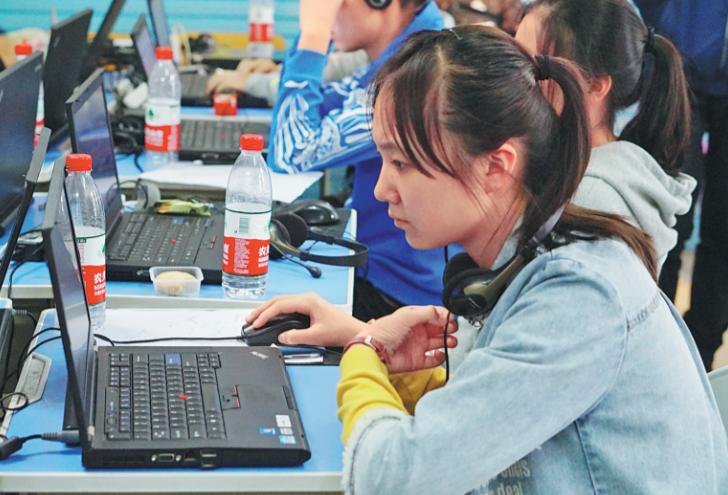Learning becomes 'easier and smarter'


In Central China's Henan province, a group of veteran teachers with an average teaching experience of more than 17 years were participating in a "special contest" with an artificial intelligence-enabled machine.
The teachers and the machine taught students some new knowledge and then had them take a test.
The result surprised everyone. Students taught by the AI-enabled machine performed much better than their peers taught by the experienced teachers.
The contest marked another milestone in the progress of China's AI technologies. AI now helps Chinese students perform better in various exams.
"AI is expected to become the 'experienced teacher' for Chinese students in the internet era," said Li Haoyang, founder of Shanghai Yixue Education Technology Co Ltd, the company that developed the AI-enabled machine in the human-computer competition.
The traditional way of teaching is inefficient, Li said, as different students have different weaknesses and teachers at school cannot offer one-to-one tutoring for want of time, given the constraints of teaching a whole class.
"That's why AI matters. The system we developed knows the students much better than they understand themselves and our AI products make learning much easier and smarter for them," he said.
In China, education has long been exam-oriented. Grades received in the examinations determine who gets admission into coveted secondary schools and universities.
Several Chinese companies have embraced the trend of AI-enabled education and are using newer technologies to compete in the market. The main applications of AI in China's education sector include intelligent paper and work correction, voice recognition and adaptive learning.
Yixue Education, which focuses on adaptive learning, developed an AI-enabled system to divide knowledge into small chunks of tailor-made lessons so that students can focus on their weaknesses instead of wasting time on what they have already mastered.
Under its system, a student first takes an exam. The AI-enabled system will analyze the results, identify the student's weaknesses and arrange a personalized teaching plan.
The student then takes lessons online, which usually last an hour and a half each. Toward the end of the online course, the student takes a simulated test to ensure the weak points have been fully understood and solved.
Another thing the Shanghai-based company does is classifying knowledge into smaller chunks at different learning levels.
"To break the practice of Chinese students learning only for exams, we endeavor to help them increase their ability of learning, not just accumulating knowledge," Li said.
Yixue's smart teaching has spawned success in China, with its paid users exceeding 100,000 across more than 20 provinces. Latest company data showed its total revenue surpassed 300 million yuan ($48 million) last year, 10 times higher than that of the previous year.
The company has raised 270 million yuan from angel investors, including the country's two education giants TAL Education Group and New Oriental Education & Technology Group Inc.
"China's AI education development has entered a new phase. A great number of students yearn for high-quality education," Li said. "For an education company, the key to winning the game is that it should be able to use big data and AI to truly and greatly improve students' efficiency and capability.
"We plan to expand our products to 1,000 cities (counties) and 1,500 schools this year and hope to focus on more subjects. We will also endeavor to improve our technologies, hoping to become an excellent 'teacher' for students."



































